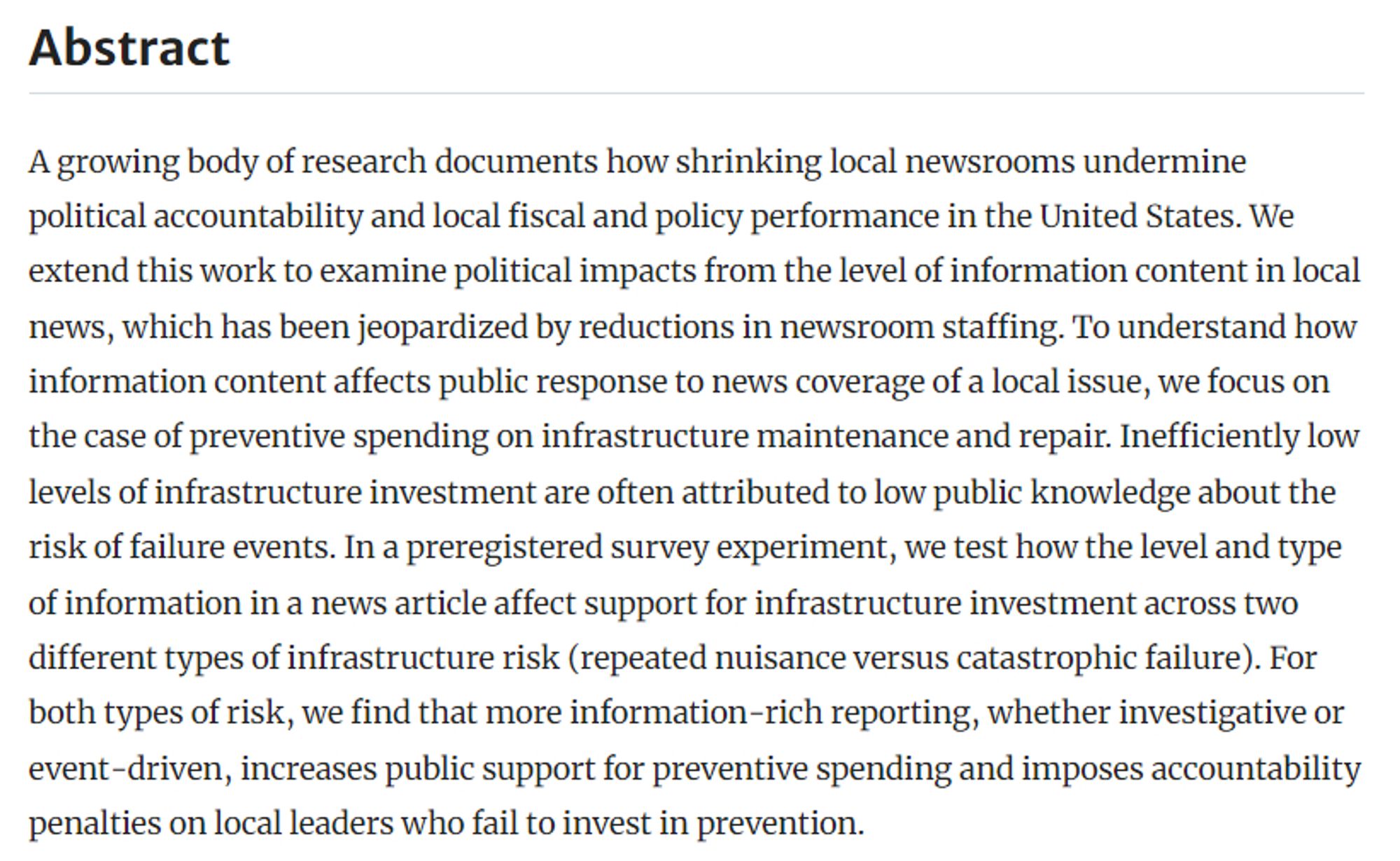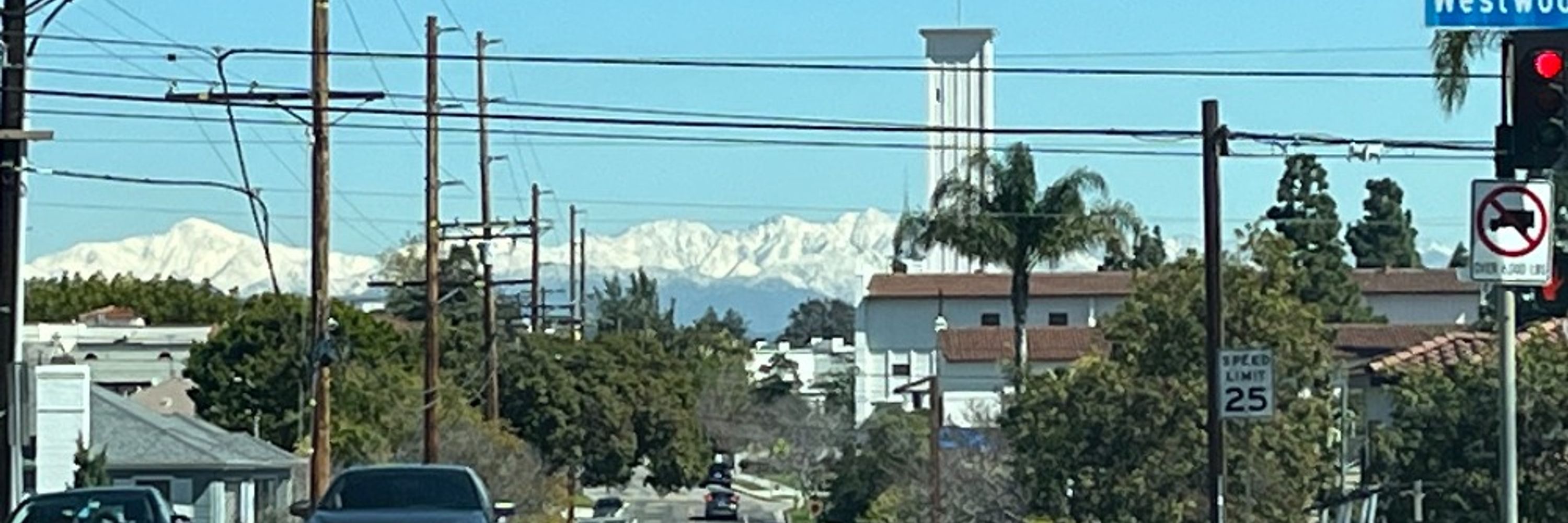
Your maps are pure gold for presentations and teaching @cbgoodman.bsky.social. Thank you from all of us who use them!
Reading strong local journalism is tied to greater support for funding dams, sewers and other basic infrastructure vital to climate resilience, according to new research from UCLA's @mullinmeg.bsky.social@atrexler.comnewsroom.ucla.edu/releases/loc...
Ed Begley in 1999 taking about the electric go cart "powered by my own sense of self satisfaction!" Every. Single. Day.
Ultimately, we argue that local news resourcing is important for supporting local communities' physical infrastructure, and add to a growing literature on the importance of local news to democratic accountability. Thanks for reading! Full article open access here: doi.org/10.1007/s111...
Importantly, we find these positive effects for both catastrophic and nuisance infrastructure issues. Effects are also similar for investigative reporting and (less resource intensive) contextual reporting. In either form, providing more information about risk boosts public spending support.
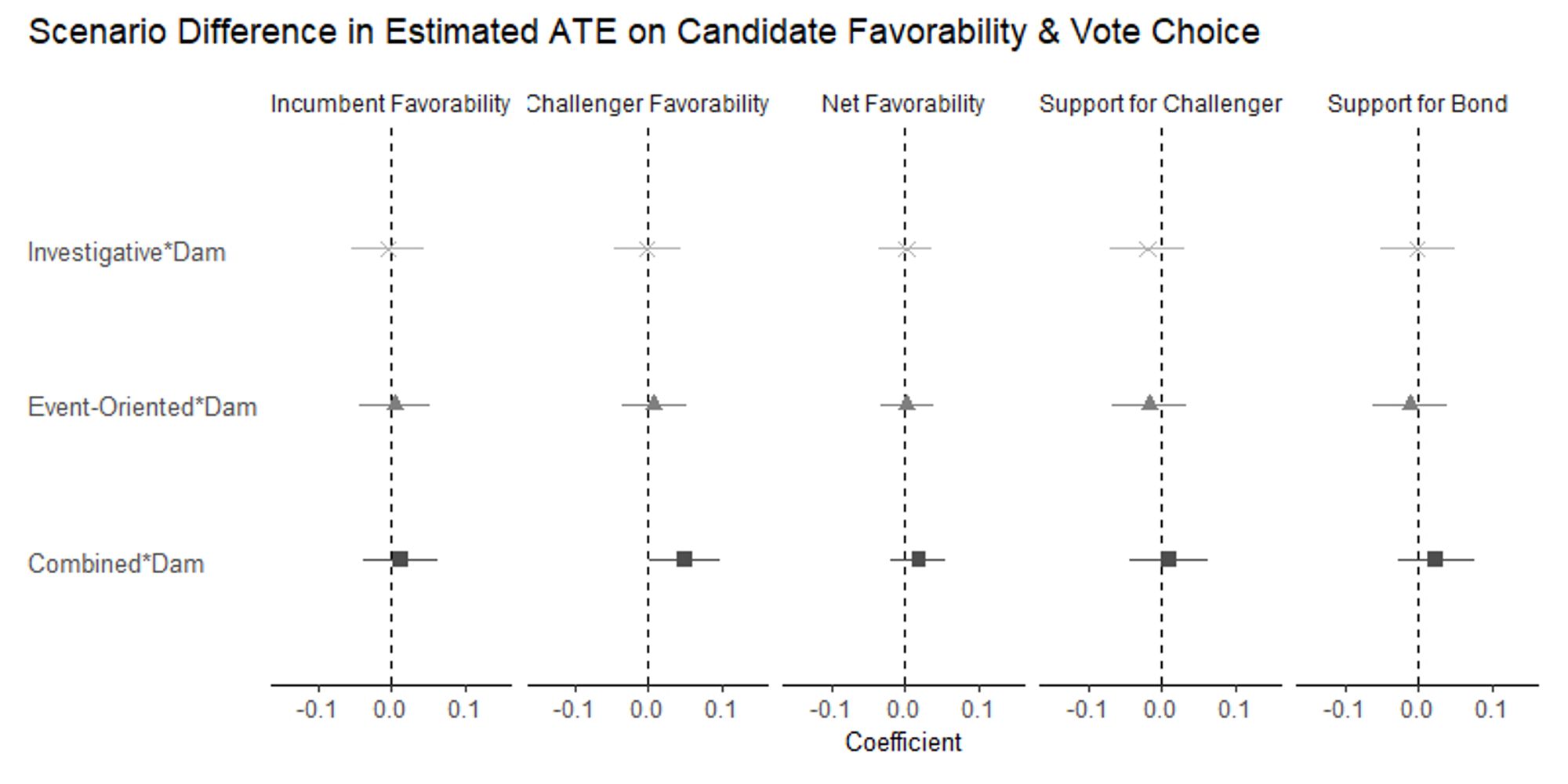
We find that both types of info richness increases support for a pro-spending candidate, accountability for an anti-spending incumbent, and support for a costly bond measure for preventive infrastructure spending.
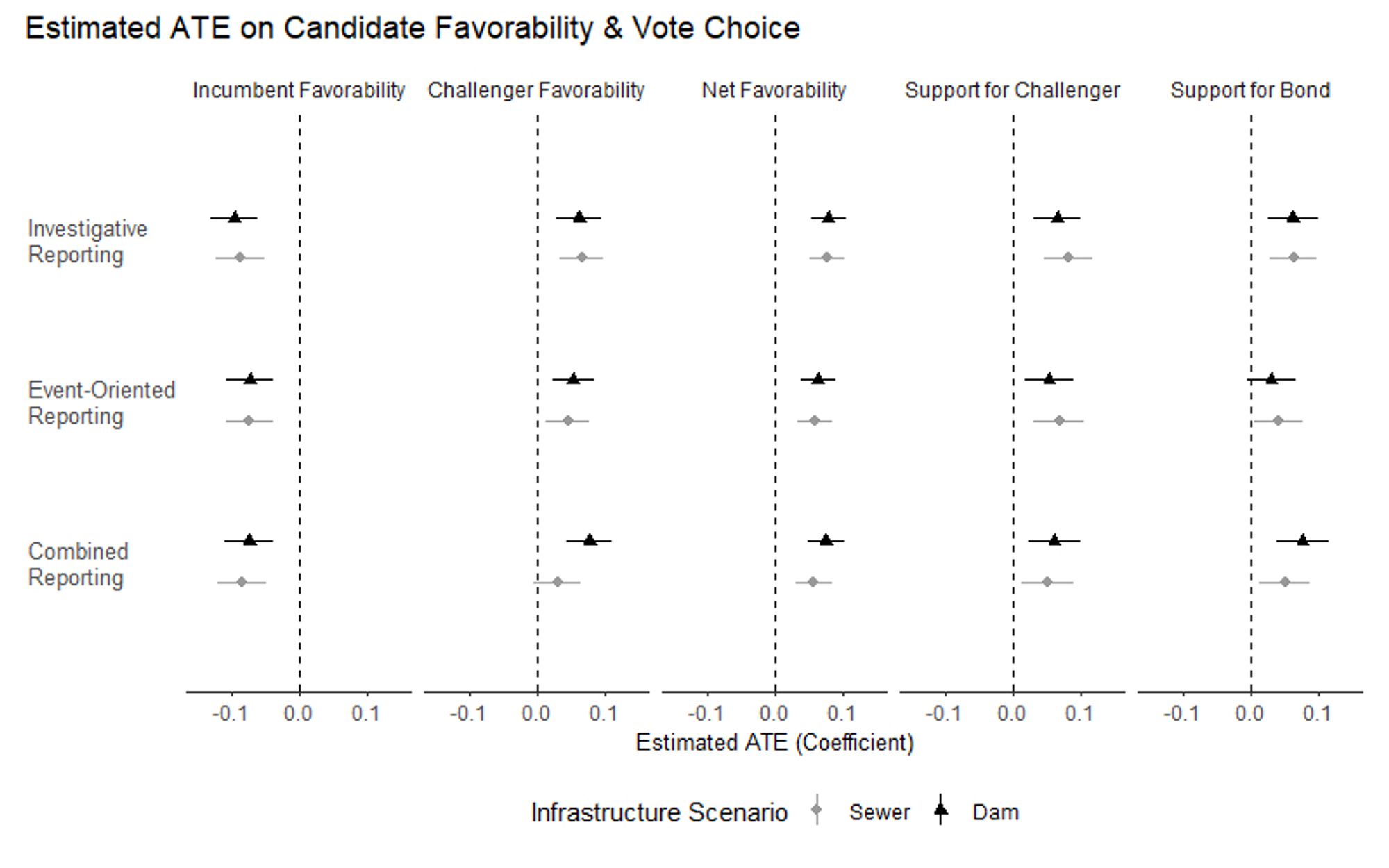
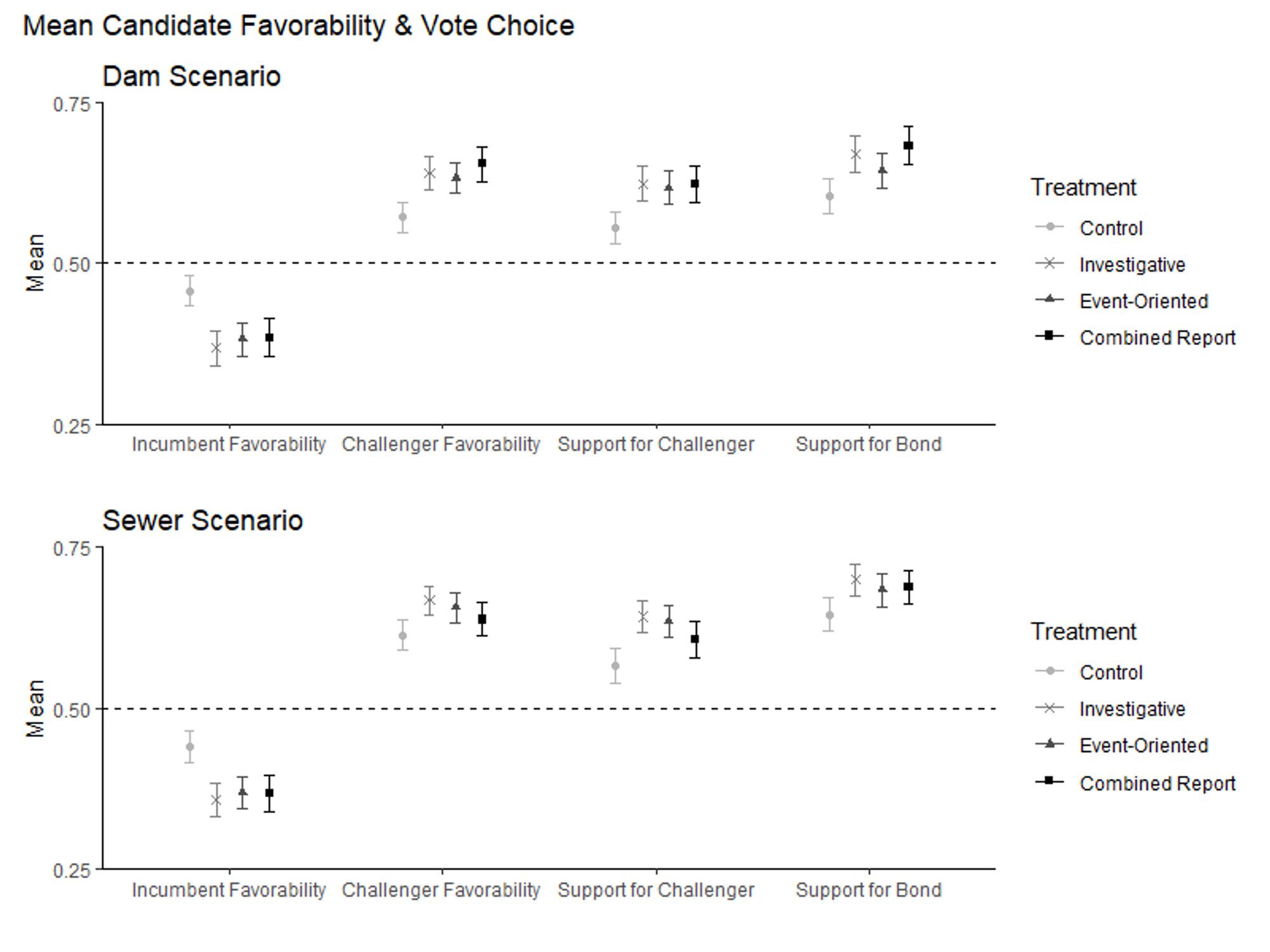
We provide evidence for this with an experiment on two infrastructure systems (dam or sewer). We present respondents with a news article about infrastructure problems, and vary the level/type of info in the article: either barebones, or with investigative or contextual-thematic coverage (or both).
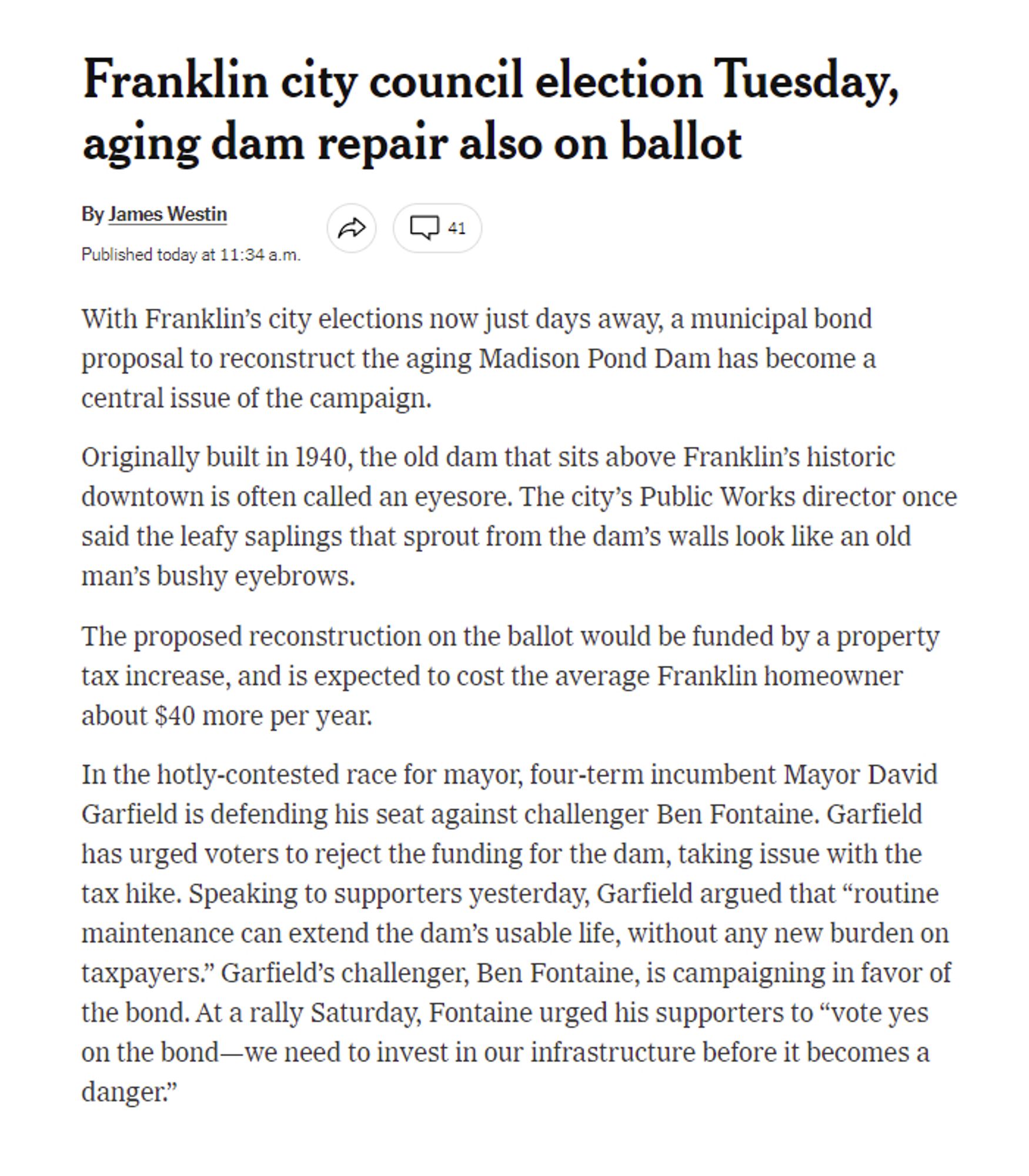
Many argue that low local spending on infrastructure is due to voter myopia: preferences for low taxes in the short term win out over uncertain future benefits. We argue that *low availability of information* about risk inhibits public support for infrastructure spending & pro-spending candidates.
First up: local news is in market failure. While many studies look at newspaper closures, we focus on issues of declining newsroom staff. Skeleton newsrooms struggle to cover local issues at all, and cannot conduct info-rich reporting like investigative work or connecting to broader contexts.
**Publication Alert!** "Local News Reporting and Mass Attitudes on Infrastructure Investment," from me & @mullinmeg.bsky.socialdoi.org/10.1007/s111... Thread:
